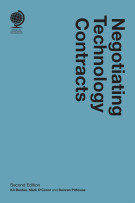An interview with market leading oil and gas lawyer Peter Roberts
23 May 2014

Partner, Oil Gas and Energy
Peter Roberts, commercial energy projects expert and London managing partner at Andrews Kurth LLP, is interviewed by energy blog editor Marc Hammerson on joint operating agreements.
Why does the oil & gas industry use joint operating agreements?
In any oil and gas exploration activity, there will be a vertical relationship between the resource holder (usually the government of the host country) and the company (usually an international oil company) that wishes to explore for oil and gas. This relationship is governed by a concession agreement. Where multiple companies wish to work together to explore for and exploit hydrocarbons through a joint venture (JV), a joint operating agreement (JOA) is used as the contractual structure governing the horizontal relationship between the co-venturers to ensure the proper performance of the terms of the concession.
Given the large-scale, capital intensive and inherently risky nature of upstream oil and gas exploration activities, companies partaking in such oil and gas projects will often choose to do so through a JV. This allows two or more companies to share the burden of the expenses and commercial risks of the project between them. The JOA’s key function is to define each party’s percentage interest share in the project, as between the co-venturers. This in turn informs profit and cost-sharing considerations under the JOA, as well as the allocation of the collective liability of the co-venturers to the resource holder.
What makes a JOA different from other incorporated JV companies used by other industries?
A JOA creates a contractual, unincorporated JV. In contrast, where an incorporated JV is used, the project participants will create a separate legal entity as a vehicle to carry out the venture. In an unincorporated JV, the JOA governs the relationship between the co-venturers, each of which is bound by the contract and its terms, with each party holding its interest in the JV directly and in agreed proportions. Essentially, the JOA comprises the ‘constitution’ which the co-venturers must adhere to for the duration of the JOA.
A key advantage of the JOA is the flexibility it affords the co-venturers for structuring the joint operations. The parties to the JOA are not bound by jurisdictional statutory rules and are therefore relatively free to determine their own rules for governance. It requires few formalities to establish and is tax transparent (as each party takes its own profits and losses directly, with no pooling of profits).
Are JOAs standard documents? Are there any regional differences – or other differences based on onshore/offshore, gas/oil or type of underlying concession?
A number of model form JOAs are in circulation and a model form will usually be selected by the parties as the starting point for their negotiations. However, although the fundamental concepts remain the same, final form JOAs will typically have been heavily amended to provide for the characteristics of the specific project, such as the type of acreage which is the subject of the JOA (eg, whether it is onshore/offshore, deepwater/shallow water), the terms of the licence and the underlying concession, and the objectives and requirements of the parties to the JOA. Caution should be exercised in choosing to adopt the contract without modification, particularly in light of the fact that the current model forms have largely been created with the conventional, offshore hydrocarbon project in mind. Internationally, the most widely used model is the JOA issued by the Association of International Petroleum Negotiators (AIPN), while the Oil and Gas UK model form JOA is primarily used for offshore operations on the UK Continental Shore. Other model forms are published by the American Association of Professional Landmen (AAPL), the Canadian Association of Petroleum Landmen (CAPL) and the Norwegian Petroleum Directorate.
Why do JOA parties delegate operational responsibility to one party? Why don’t they share responsibility?
The parties to the JOA are essentially divided into two classes: the operator and the non-operator. One pf the parties is designated as the operator for the purposes of managing the day-to-day operations. The operator assumes this position on the basis that it will not profit from the role; nor will it incur liability for acting as such. The appointed operator will usually (but not always) be the party which holds the largest percentage interest in the project, as it is assumed that the most heavily invested party will have the greatest incentive to ensure that operations under the JOA are properly performed.
The appointment of an operator serves to avoid unnecessary delays that could otherwise arise over the negotiation of relatively minor decisions under the JOA. However, as the operator is responsible for implementing the collective aspirations of the JV, its actions are supervised by the other JOA parties. Before major decisions relating to the joint operations are made - for example, in relation to expenditure for the work programme - the operator will often need approval from the other parties (acting through the operating committee (OpCom) - see below) before it can proceed. In this sense, each party continues to share operational responsibility.
In one sense, therefore, the term ‘joint operation’s is a misnomer.
What remedies are available to the JOA parties if the operator makes a mistake?
All JOAs include provisions that limit the operator’s liability for any loss caused by the operator while conducting activities under the JOA, with some exception for where the operator is grossly negligent or commits wilful misconduct, with these terms being defined specifically by the JOA.
However, proving that the operator is guilty of wrongdoing under these headings has historically proven difficult for non-operators. Non-operators that become dissatisfied with an operator’s conduct of the joint operations have the right under most JOAs to remove the operator and replace it with another. Again, the burden of proof is high and may be difficult for non-operators to discharge in practice.
How do the JOA parties reach decisions?
In most JOAs, the non-operators can influence the decisions which they have identified as vital to their interests under the JOA through the OpCom - a formal committee constituted under the JOA to supervise the operator’s conduct of joint operations.
The OpCom will consist of a nominated representative from each party to represent its interests under the JOA, with decisions being taken through a voting control mechanism. During their initial negotiations, the parties will have decided on particular major decisions under the JOA that will require unanimity (eg, a decision to surrender any part of the concession area or to seek to modify or extend the duration of the concession), and will provide for these in the JOA. However, most decisions will be decided by votes in favour passing a pre-determined threshold.
The percentage voting interest of each representative will usually correspond to the percentage interest held by the party it represents under the JOA, and therefore the party with the largest percentage interest will have the largest vote at the OpCom. Whether one party can influence a decision relating to joint operations will depend on a number of factors, such as the size of its percentage interest under the JOA (and therefore its ability to influence voting at the Opcom), the defined passmark under the voting mechanism and the particular voting provisions which have been agreed between the parties.
The US model form JOAs (eg, AAPL, CAPL) do not recognise the concept of the OpCom, however.
What if one party disagrees with the majority?
The voting control mechanisms outlined above may be insufficient to protect a party’s interests where it disagrees with the majority. Given the length of exploration and exploitation activities, it is possible that a party’s interests or circumstances may change over time, and that it may find itself unwilling to partake in certain joint activities that it originally agreed to when it entered into the JOA.
The JOA will usually contain provisions for ‘exclusive operations’, whereby a party can elect not to participate in an operation that has been approved by the OpCom (non-consent), or a party can propose to undertake a particular operation without the involvement of the parties that were not in favour of the proposal (sole risk). Not all JOAs will contain provisions for exclusive operations; but where a non-consent clause is included, this will allow a party to opt out of certain projects - perhaps where it is unwilling to bear the financial burden or lacks the technical capability associated with a proposed activity.
Non-consent clauses are contentious as they arguably undermine the central principle of the JOA that risks should be shared between the parties in accordance with their participating interest. A non-consent clause allows a party to the JV to elect not to participate in certain operations, which therefore results in the remaining parties bearing a greater share of the risks and costs.
What happens if one of the parties fails to pay its share of expenses?
If a party fails to pay its share of expenses due by a specified date, this party will be considered to be in default under the JOA and, alongside an obligation to repay the debt owed, is likely to be subject to sanctions which will be defined under the JOA.
During the period of default, the defaulting party could lose a number of its rights under the JOA, such as the right to attend operating meetings or to vote in any matters discussed at such meetings, as well as the right to access any data or information generated in relation to the joint operations. It may also be required to pay any interest accrued on the amount due until it pays the full amount owed. Where a defaulting party fails to remedy a default after a period of time (which will be defined in the JOA), the defaulting party may be invited to withdraw from the JOA, otherwise known as forfeiture. This could result in the deemed transfer of the defaulting party’s interest in its asset to the non-defaulting parties, which may elect to sell the asset to recover the debt owed. This remedy has rarely been applied in practice and there is some legal uncertainty regarding its real efficacy.
The remedies available to the non-defaulting parties will vary between individually negotiated JOAs as a result of what the parties have agreed between themselves, but should serve to deter parties from defaulting on their payments, without being disproportionately penal.
Your book on JOAs is now in its second edition - what is new in this area?
Several things have changed. With the rapid recent growth in shale gas exploitation in the United States, and with other countries with shale gas deposits (eg, Australia, Argentina and the United Kingdom) investigating their own opportunities for exploration and exploitation, the new challenge in this area is ensuring that the current model form JOAs can adapt to meet the requirements of onshore gas projects.
An onshore shale gas development project will differ from its conventional gas production project cousin in a number of ways. For example, the experience and the ability of the party appointed to act as the operator under the JOA in managing an onshore shale gas development project will be critical. The operator must be skilled in managing vertical and horizontal drilling programmes, undertaking hydraulic fracturing with minimal associated impact and managing the project’s overall environmental performance.
There is also an increased focus on operator liability post-Macondo. The operator under JOA typically cannot be held liable for any loss caused while conducting activities under the JOA, with exception only where the operator is ‘grossly negligent’ or commits ‘wilful misconduct’. These terms will be defined specifically by the JOA, and proving that an operator has acted in such a manner under the factual circumstances has been notoriously difficult for non-operators. Following Macondo, non-operators will be particularly concerned to ensure that the JOA affords them with rigorous contractual protection in respect of joint operations, particularly where the operator negotiates drilling contracts with third parties on behalf of each co-venturer.
How do you see this subject area developing in the long-term?
This subject area will continue to evolve to match industry changes and to track the aspirations of new market entrants. The oil and gas industry has traditionally been dominated by oil and gas companies, but in recent years a raft of new market participants have entered the scene. For example, a number of companies are now offering alternative methods of financing specifically for oil and gas projects.
Another interesting development is the increased involvement of national oil companies or state-owned entities becoming direct JOA participants. This has been expressly recognised in the guidance note to the 2012 AIPN JOA, which contemplates a situation in which a state-owned or government oil and gas company may elect to participate directly as a co-venturer under the JOA, and offers suggested wording to include in the JOA to this effect.
Peter Roberts is the author of Globe Law and Business title Joint Operating Agreements: A Practical Guide, Second Edition. Click here for full details including a free sample chapter.













Any comments - send us an email